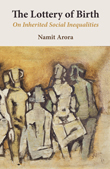Hippopotamus
Hippopotamuses (Hippopotamus amphibius, family Hippopotamidae, order Artiodactyla) are the largest non-ruminating, even-toed, hoofed mammals. They formerly occupied lakes and rivers throughout sub-Saharan Africa but are now restricted to parts of eastern and southeastern Africa, from The Sudan southward to South Africa. The animals evolved in the Late Miocene Epoch (11.2 to 5.3 million years ago) and flourished in Asia and Europe as well as Africa during the Pleistocene (1.6 million to 10,000 years ago).
Hippopotamuses (4.6 m length, 1.5 m height, weight up to 5 tons) have barrel-shaped bodies, large mouths, short legs, and four toes on each foot. The skin is very thick, nearly hairless, and grayish brown above, lighter and pinkish below. The ears and nostrils protrude so that they are above water when the animal is floating with the rest of its body submerged. The mouth is enormous and opens extremely wide; the upper lip is thick and bulging; the incisor and canine teeth are very large and grow continuously as they are worn away. The lower canines may reach a length of 30 cm above the gum line. The hippopotamus's numerous skin glands release a protective, oily, pinkish secretion that has popularly, but incorrectly, been thought of as "blood sweat" because it appears red in sunlight; this pigment actually serves to protect the animal's skin in both water and dry conditions.
Hippopotamuses live in rivers, lakes, swamps, or other permanent bodies of water in groups typically numbering 7-15 animals. During the day they sleep and rest in or near the water, and at night they emerge onto the land to feed on grasses that they crop with their horny lips. In water they can swim fast, can walk along the bottom, and can submerge (with ears and nostrils closed) for 3-5 or as long as 10 minutes at a time. On land hippopotamuses are steady plodders and can gallop for short distances, but they are never found very far from water, and their grazing range extends inland for only about 3 km.
A single young is born after a gestation period of about eight months and weighs 25-55 kg. The baby often rides the mother's back while she swims or floats at the surface. Though gregarious, hippopotamuses tend to be aggressive, and in the breeding season males engage in battles that are sometimes fatal. The hippopotamus's voice is a loud grunt or bellow, and its gaping "yawn" is in fact a threat signal. Hippopotamuses are generally inoffensive to humans but sometimes make unprovoked attacks on small boats, smashing them in their jaws. Their flesh is much esteemed by Africans, and their teeth are of good quality ivory. They can live to the age of 40 years in captivity. ♣
|
Serengeti National Park, Tanzania |
|||
 |
 |
 |
 |
 |
 |
||
 |
 |
||
 |
 |
 |
 |
 |
 |
||
 |
 |
||
 |
 |
 |
 |
 |
 |
 |
 |
 |
 |
 |
 |
Lake Manyara National Park, Tanzania |
|||
 |
 |
 |
 |
Ngorongoro Conservation Area / Selous Game Reserve, Tanzania |
|||
 |
 |
 |
 |
 |
 |
 |
 |
 |
 |
 |
 |
Designed in collaboration with Vitalect, Inc. All rights reserved. |








